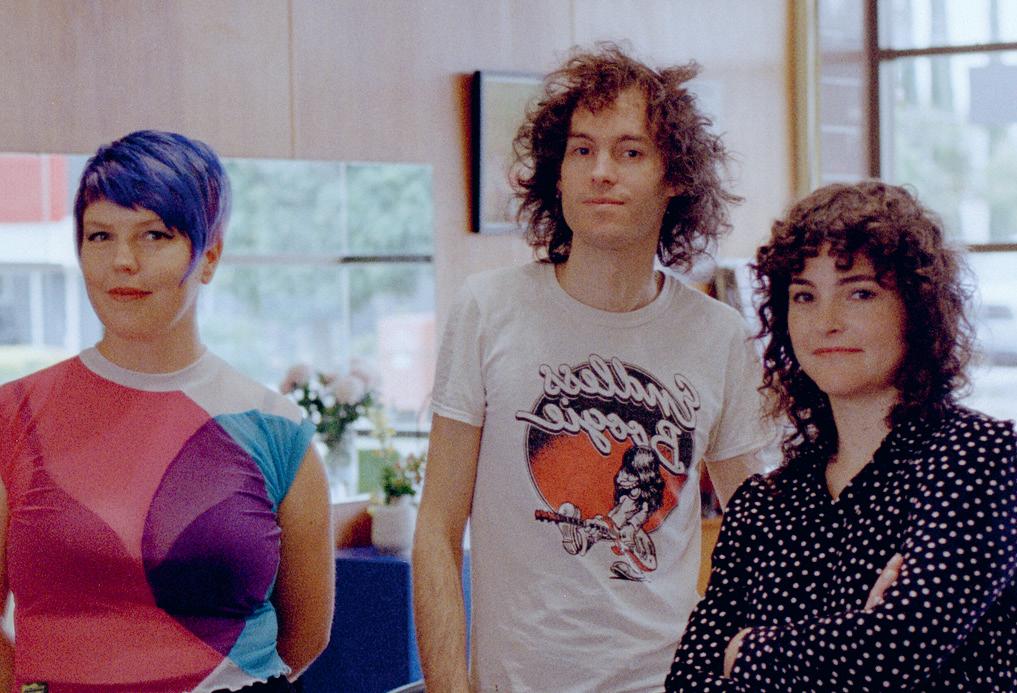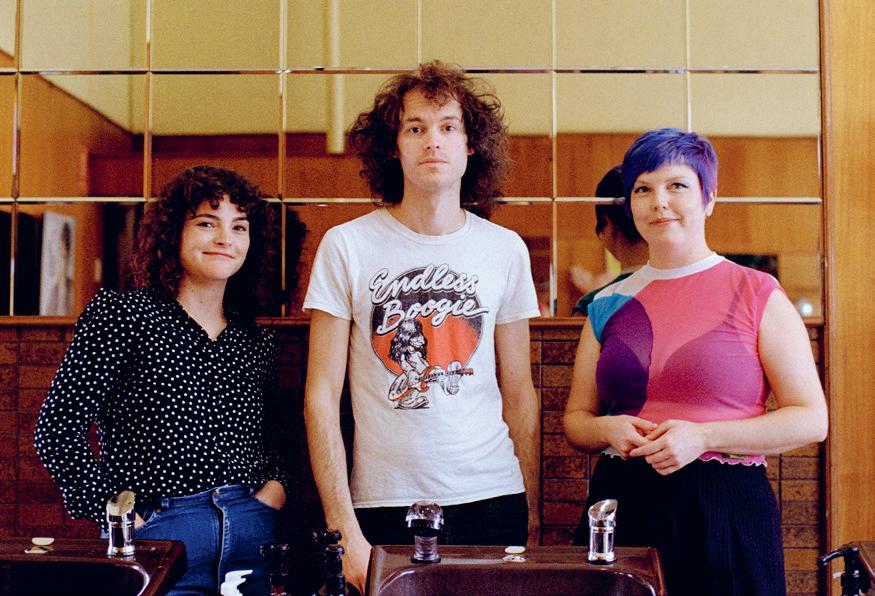
3 minute read
BLE TIES
from Forte 745
by Furst Media
And All Her Plans
WORDS BY DAVID JAMES YOUNG
Advertisement
There’s a niche of the internet that specialises in specific snapshots of very specific moments, known colloquially as “photos taken moments before disaster”.
Here’s one for you: Far Enough, the second studio album by Melbourne post-punk stalwarts Cable Ties. Release date: March 27, 2020. It’s bizarre to have such an outspoken and acerbic rock record forever associated with Tiger King and banana bread, but such was the nature of things at the time.

“We were two days from getting on a plane to SXSW before it was cancelled – and then things got even worse,” recalls Jenny McKechnie – the band’s lead vocalist and guitarist. “When the album came out, we were doing all this press – but instead of talking about the album, all anyone wanted to talk about was COVID. A whole year of our lives was set up around playing this album to people, and none of it happened. I’d be lying if I said it wasn’t devastating. If there was anything I took away from it, though, it’s that the themes of that album were strangely pertinent to what was going on – people sent us a lot of messages saying they were connecting with it in that way. Fingers crossed for no global calamities this time around.” With lockdowns in the rear-view and the possibilities of touring open again, Cable Ties have returned with their third album All Her Plans. Though in some aspects it continues on the band’s foundation of driving bass riffs, angular guitar work and charging drums, there are also some curveballs in the tracklist that are guaranteed to raise intrigue. In describing the album herself, McKechnie notes that the album “takes a pretty different turn” and that its themes draw from elements that are “a lot more personal” than previous Cable Ties albums.
The title of the album, for instance, takes its name from a lyric in the song ‘Mum’s Caravan’ – with the singer telling of how her mother put “all her plans”, that would have inevitably involved travelling around the country with the titular caravan in tow, on hold when “shit hit the fan”. For a woman who once shrieked sociopolitical diatribes with phrases like “I am not a production unit” and “steal your brother’s guitar”, a gentle strum and piano accompanying her lilting voice is quite the contrast.
“I’m still sort of going through the process of how to talk about this stuff,” she confesses. “Previously, everything that I’ve written is really an open book. I’d go into every interview and be like, ‘Here’s exactly what I’m talking about’. This time? I’m not entirely sure what I have to have clear boundaries about – which is interesting for me, as a person who likes to spill my guts. When we started making the album, all of this stuff just started coming out. It was what I needed to process.”
Don’t get it twisted, either: Cable Ties didn’t become apolitical overnight. Album highlight ‘Silos’ is classic Cable Ties, both musically and lyrically. Over rumbling toms and a snarling bass line, McKechnie is heard railing against the country’s failing social services in tandem with its shameful incarceration system.
“The so-called justice system, as it is right now, is not a way to deal with problems of mental health, poverty and racism,” she says.
“Everything gets dragged through it, and through the cops, when it’s not appropriate. We need to defund the police and start funding social services that are connected and can provide help. I’m sick of being in a situation where an ambulance is needed, or some other crisis support, and it’s the cops again.” Having remained unchanged in its lineup since forming in 2015, Cable Ties – McKechnie, bassist Nick Brown and drummer Shauna Boyle – have forged an idiosyncratic sound within not just the Melbourne music scene, but Australia at large. So much so, that even when they’re deviating from their usual musical path – like on ‘Mum’s Caravan’ or the album’s heartfelt lead single ‘Time For You’ – you can still pick them out of a line and identify them as Cable Ties songs. When queried as to what it is about the band that has forged such a magnetism, McKechnie puts it down to simultaneous musical development.
“When we started, I’d never played electric guitar before,” she says. “Shauna had played drums about three times. Nick had barely played bass. We honed our sound and our instruments by just jamming together for long periods. Through that process, we crafted a really specific sound. It’s not like three people practising in their rooms or with other bands, then coming together with specific influences in mind. We weren’t even musically capable of wanting to sound like a certain band. That meant this band has had time and space to develop into its own thing. It’s nothing like the Celtic jigs I used to play.”










